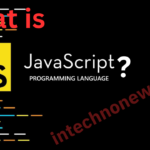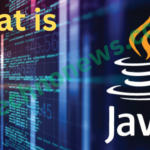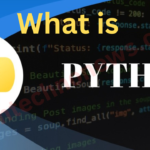Demystifying Linux: An Introduction to the Operating System That Powers the Digital World
Amidst the vast expanse of operating systems, Linux arises as a sturdy and flexible alternative, fueling an array of gadgets spanning from smartphones and tablets to servers and supercomputers. Nonetheless, for many, the realm of Linux remains cloaked in mystery. What exactly characterizes Linux, and what factors bolster its notable standing within the digital sphere? Let’s initiate an expedition into the core principles and decipher the puzzle encircling this formidable operating system.
Understanding Linux:
Linux stands as an open-source creation initiated by Linus Torvalds in the year 1991. The cornerstone of an operational structure recognized as the “kernel” shoulders the responsibility of managing hardware resources and furnishing essential services to higher-tier software. Linux functions as the groundwork for various Linux distributions, or “distros,” due to its kernel nature.
Key Characteristics:
- Open Source Philosophy: The open-source essence of Linux stands out as a defining trait. This signifies that anyone possesses the liberty to scrutinize, alter, and disseminate its source code sans charges. Such a philosophy fosters collaboration and innovation within the Linux community, fostering swift progressions and a plethora of customization opportunities.
- Modularity and Customization: Linux presents unparalleled adaptability, managing the cost of clients and the capacity to tweak their working climate to match their interesting necessities. With an immense range of programming bundles and customization options available to them, clients can make a custom-made figuring venture.
- Stability and Security: Linux garners acclaim for its robustness and robust security attributes. It emerges as a favored option for both personal and business applications owing to its stringent user permissions and modular framework, effectively mitigating security vulnerabilities.
- Scalability: From embedded gadgets to corporate servers, Linux seamlessly adjusts to a diverse array of hardware architectures. This adaptability, in conjunction with its dependability, has solidified Linux as the preferred selection for mission-critical setups and cloud infrastructure.
Popular Linux Distributions:
The foundational essence of the operating system lies within the Linux kernel, serving as its nucleus. An abundance of distributions, each adding its unique touch, embellish this core. These distributions offer a diverse spectrum of graphical user interfaces, software repositories, and bundled applications. Here, I unveil a curated assortment of the foremost Linux distributions in common usage.
- Ubuntu: Famous for its natural UI and extensive assortment of programming bundles, Ubuntu stands apart as an inclined toward choice among those wandering into the domain of Linux interestingly.
- Debian: Esteemed for its relentless solidness and steady devotion to the standards of open-source programming, Debian goes about as the foundation whereupon various different disseminations are constructed, Ubuntu notwithstanding.
- Fedora: Fedora is a testing ground for upcoming innovations and places an emphasis on the most recent software technologies. Red Hat sponsors it and the open-source community backs it.CentOS: Renowned for its long-term support and reliability, CentOS is derived from the enterprise-grade Red Hat Enterprise Linux (RHEL) distribution.
The Impact of Linux:
Linux has infiltrated nearly every facet of contemporary computing, fueling an extensive range of devices and infrastructure. Its impact transcends conventional computing realms, as Linux-driven systems hold pivotal positions in burgeoning technologies like cloud computing, IoT (Internet of Things), and containerization.
Moreover, Linux has cultivated a dynamic environment of engineers, fans, and associations devoted to propelling open-source programming. This cooperative soul has prompted the production of creative ventures and drives that keep on forming the fate of innovation.
Conclusion:
The realm of Linux transcends mere software; it embodies a philosophy fostering cooperation, empowerment, and transparency. Its prowess, adaptability, and grassroots development ethos have positioned it as a vanguard in the realm of technology.
Whether you’re a carefully prepared Linux client or an inquisitive rookie, investigating the universe of Linux can be a remunerating venture loaded up with revelation and development. So, the next time you boot up your computer or interact with a digital device, remember the unseen force powering it all—Linux.












